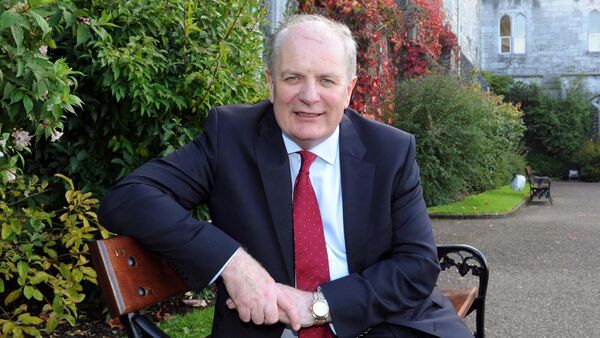There is a lot of talk about the ‘next normal’ for businesses and the fact that we won’t be going back to business as we once knew it, so what exactly will this ‘next normal’ look like and what should businesses be doing now to prepare for it.
Entrepreneur and former RTÉ ‘Dragon’s Den’ TV series judge Gavin Duffy says a lot of the changes we are seeing because of Covid-19 — things like remote working, online shopping, video communication were already underway.
The difficulty he says for businesses and for small businesses, in particular, is the speed at which these changes are happening.
“The changes themselves are not the problem – businesses are well capable of change – it’s the speed of change that is unsettling for us. When the need for change is external like it is because of Covid-19 then we’ve no choice of pace, it becomes a challenge.
“I’m consulting with a number of businesses right now across the country in different sectors and working with and mentoring CEOs and it is clear that the premises we used to call our workplace has been radically altered and redefined and you really have to realign your business to that new reality”.
The coronavirus crisis has, he says, shown all of us how to live online and while we spend more time than ever in our home and social distancing, our inboxes are full of invitations to digital events — virtual coffee mornings, webinars, zoom pilates, art classes, skype book clubs.
“To think few of us ever even heard of Zoom a year ago and now it is an established world stage platform”.
Gavin says one of the big new trends going forward will be digital hubs and he said we have seen this happening already with the €8 million government investment in digital hubs contained in Budget 2021.
“That investment was very welcome and shows more than ever the need for an ambitious remote working strategy for communities and companies. I think it is very good news for towns and villages around Ireland as it will mean more people will be working near where they live and these towns should get a new lease of life.
“The madness of getting up 5.30am and driving from Portlaoise to an office in Dublin to do a full day’s work and driving home again is gone. We are not going back to that. In a way it was a tyranny and so we should not be unsettled by it as long as we have something else.
“I think working from home suits some people, but if workers have a choice by and large they prefer to have 15/20 minute drive to a digital hub where they have a hot desk with good broadband that they can work from.”

You could say pre-pandemic, employers and employees alike accepted the inevitability of office working despite the costs and inconvenience. Now Gavin says we know that we have a choice. “We are witnessing the shift from fixed to fluid in terms of how we can do office work, how people think about office work and how we use office buildings”.
And he believes these changes have the potential to invigorate employee productivity while simultaneously trimming excess costs.
Gavin refers to a book Where Is My Office — Reimagining the Workplace for the 21st Century written by Chris Kane who asks why office spaces remained relatively unchanged for decades.
“It is an excellent book because it shows why we need to think differently about how we do things. If you think about offices over the years — we have gone from using a fax machine, to big desks with phones and big computer screens, laptops and now smart devices and cloud computing. All this has been happening quietly and now Covid-19 has come like a ‘tornado’ and has proved we can do things differently and it is about choice”.
Gavin says some of the larger employers he has spoken with have noticed their employees are working more productively from home partly due to the fact they no longer have a long commute each day.
SMEs and start-ups he said need to ensure that they have an online presence and ensure they are active in promoting their business. If you are a bricks-and-mortar type business then Gavin says 40% of your future customer interaction will be on-line and this he stresses is not just e-tailing but customers will expect all transactions to be conducted on-line.
“If you are a local bricks-and-mortar store with just a basic or underutilised website, there are ways to do more and upgrade quickly. There is and has been a lot of help available through enterprise offices who have been handing out vouchers to help people take their business online. “Another important aspect is to localise your online presence. If you are new to e-commerce, rather than trying to do business on a global scale or competing with other vendors on Amazon and eBay, think local, instead. Consider ways to focus on customers within a 30-kilometre radius for example by offering free local delivery within this radius.”
If you are self-employed then Gavin suggests you need to change your mindset and change the way you see yourself and your business.
“If you work as a graphic designer, for example, you need to be saying I am a person who sells graphic design services and you need to promote yourself as such. It is all about reigniting your business — big or small — so we are ready to do business in the next normal.”









